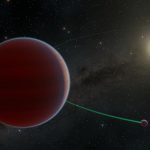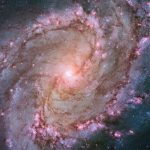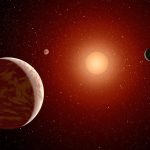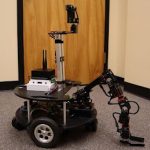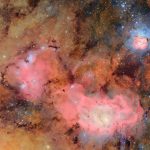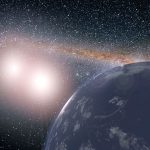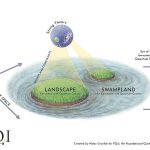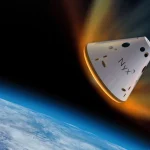Astronomers discover planets with tilted orbits and bizarre timing
A surprising new discovery has come from a fresh look at data from NASA’s retired Kepler Space Telescope.
Astronomers have found that the KOI-134 system,...
High-speed gas clouds fuel star formation in depleted galaxies
Galaxies have an overall internal motion called disk velocity. It's how gas, dust, and stars move around the galactic center.
It's not a single value...
In the search for Earth-like worlds, we should probably focus on red dwarfs
When astronomers first discovered exoplanets, they found massive ones orbiting large stars.
The technology to detect smaller planets around low-mass, dim red dwarfs took time...
Scientists discover missing matter in the universe
The vast majority of matter in the universe is dark—it is entirely invisible and detected only through its gravitational effects.
Ordinary matter—everything from protons to...
How a pizza-sized robot and VR could change lunar missions
Someday, robots might crawl across the moon helping astronauts build science labs and even future homes—and some of the early work to make that...
Scientists capture the universe in motion
After years of preparation, U.K. astronomers are celebrating a major milestone as the Vera C. Rubin Observatory reveals its first dazzling images of the...
The space metal that shrinks with heat and helps us find new worlds
NASA is getting closer to building the powerful telescopes needed to find Earth-like planets beyond our solar system, thanks to a surprising new material...
A new twist in string theory could solve a cosmic mystery
For decades, string theory has promised to be the ultimate explanation for how our universe works.
In this theory, all matter and forces are made...
Webb Telescope reveals hidden secrets of bullet cluster and dark matter
NASA’s James Webb Space Telescope has taken a closer look at the famous Bullet Cluster—a giant space collision between two galaxy clusters—and revealed new...
A spacecraft carrying human remains and cannabis crashes into the ocean
We've sent some pretty interesting payloads to space since the first satellite (Sputnik 1) launched on October 4th, 1957.
As access to space has increased,...

